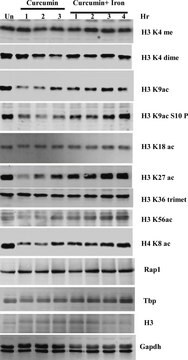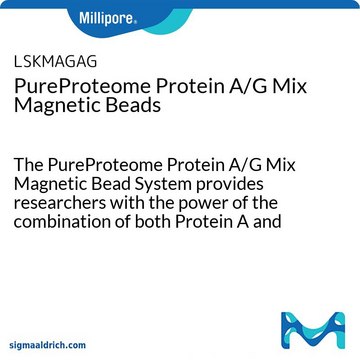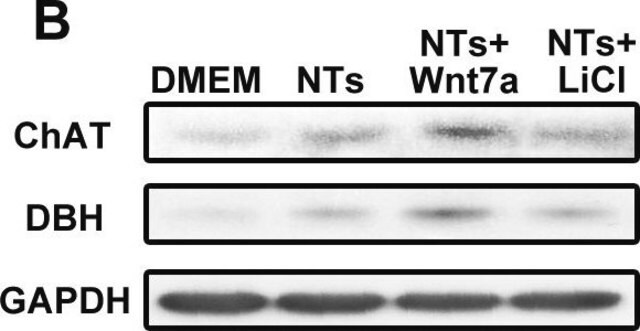HEXSM-170K-BKPMX
MILLIPLEX® Human Exosome Characterization Panel
for analysis of multiple analytes isolated from serum, plasma and tissue culture supernatants
About This Item
Recommended Products
Quality Level
product line
Milliplex®
species reactivity
human
packaging
pkg of 96 wells
assay range
standard curve range: 0.4-1,500 ng/mL
(CD9)
standard curve range: 0.5-2,000 ng/mL
(CD81)
standard curve range: 122-500,000 pg/mL
(CD63)
standard curve range: 1: 0.6-2,500 ng/mL
(Flotillin)
standard curve range: 1: 0.9-3,500 ng/mL
(Syntenin)
standard curve range: 24-100,000 pg/mL
(Calreticulin, GAPDH)
standard curve range: 49-200,000 pg/mL
(TSG101)
inter-assay cv: <20%%
intra-assay cv: <10%
technique(s)
multiplexing: suitable
detection method
fluorometric (Luminex® xMAP®)
General description
Each MILLIPLEX® kit includes:
- Quality controls (QCs) to qualify assay performance
- Comparison of standard (calibrator) and QC lots to a reference lot to ensure lot-to-lot consistency
- Detection antibody cocktails designed to yield consistent analyte profiles within panel
Panel Type: MAGNETIC Circulating Cancer
Specificity
Application
- This is an overnight assay.
- Each assay requires 25 µL per well of isolated exosomes.
- Argonaute-2 (Ago2) is a qualitative assay with the MCF7:IGF-1 Cell Lysate included as a control. All other analytes are for quantitative analysis.
- To test purity of EV preparation, the MILLIPLEX® Human Apolipoprotein 6-Plex Panel (Cat. No. APOMAG-62K) can be used.
- To asses the functional component of EVs, the MILLIPLEX® Human Cytokine/Chemokine Growth Factor Panel A (Cat. No. HCYTA-60K), Panel B (HCYTB-60K), and Multi-Species TGFβ Panel (Cat. No. TGFBMAG-64K-03) can be used.
- Following sample collection and preparation, exosomes can now be isolated and lysed according to your lab’s established protocol. We recommend Cell Signaling Lysis Buffer (Cat. No. 43-040).
- Each lab may use its preferred lysis buffer but must predetermine that the assay will not be negatively affected by the lysis buffer.
Packaging
Storage and Stability
Other Notes
Legal Information
Disclaimer
Signal Word
Danger
Hazard Statements
Precautionary Statements
Hazard Classifications
Acute Tox. 4 Dermal - Acute Tox. 4 Inhalation - Acute Tox. 4 Oral - Aquatic Acute 1 - Aquatic Chronic 2 - Eye Dam. 1 - Skin Irrit. 2 - Skin Sens. 1 - STOT RE 2
Target Organs
Respiratory Tract
Storage Class Code
10 - Combustible liquids
WGK
WGK 3
Certificates of Analysis (COA)
Search for Certificates of Analysis (COA) by entering the products Lot/Batch Number. Lot and Batch Numbers can be found on a product’s label following the words ‘Lot’ or ‘Batch’.
Already Own This Product?
Find documentation for the products that you have recently purchased in the Document Library.
Our team of scientists has experience in all areas of research including Life Science, Material Science, Chemical Synthesis, Chromatography, Analytical and many others.
Contact Technical Service












